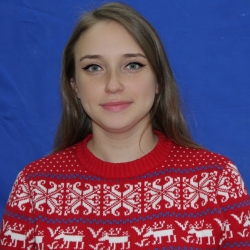Употребление возвратных местоимений
Возвратные местоимения употребляются:
после некоторых глаголов (behave — вести себя, поступать, burn — гореть, cut — резать, enjoy — наслаждаться, hurt — ранить, kill — убивать, look at — смотреть, laugh at — смеяться, introduce — представлять (кого-то), dry — сушить, вытирать, teach — учить и т.д.), когда подлежащее и дополнение — одно и то же лицо. He taught himself how to play the guitar. Он сам научился играть на гитаре. She cut herself while she was chopping vegetables. Она порезалась, когда резала овощи.
после глаголов be — быть, look — смотреть, выглядеть, seem — казаться. You don’t seem yourself today. Ты сегодня сам не свой.
после некоторых предлогов. She needs to take better care of herself. Ей нужно лучше заботиться о себе.
НО: Возвратные местоимения не употребляются после предлогов места. You can put this book on the table behind you. Ты можешь положить эту книгу на столик за тобой. (behind yourself).
После некоторых глаголов возвратные местоимения не употребляются: wash — мыть, shave — брить, (un)dress — (раздевать) одевать, afford — предоставлять, иметь возможность, complain — жаловаться, meet — встречать, wake up — просыпаться, будить…). The purse was expensive and she couldn’t afford it. (afford it herself). Сумка была дорогой и она не смогла позволить себе купить ее.
НО: Возвратные местоимения употребляются после глаголов wash или dress, если речь идет о маленьких детях или животных. She has been teaching her little son how to dress himself. Она учила своего маленького сына одеваться самостоятельно.
Устойчивые выражения с возвратными местоимениями
Enjoy yourself! Желаю хорошо провести время!
Behave yourself! Веди себя хорошо!
I like being by myself. Я люблю быть в одиночестве.
She lives by herself. Она живет одна.
By myself, by yourself, by himself — я один (одна), ты один, он один.
Help yourself to some cake. Угощайся тортом.
Do it yourself. Сделай это сам.
Make yourself at home! Чувствуй себя как дома!
Make yourself heard. Говори, чтобы тебя услышали.
Make yourself understood. Добейся, чтобы тебя поняли.
Упражнение 1. Fill the gaps with reflexive pronouns.
Ann burnt _____ while cooking.
Tim had to go to hospital after he cut ______ on some broken glass.
Shall we make _______ some lunch?
The Smith painted their house ______.
Be careful! If you fall off that wall, you’ll hurt ______.
The cat sat by the fire washing ______.
Greg was very pleased with ______ when he got the promotion at work.
He ______ organised everything for the holiday.
Упражнение 2. Fill the gaps with personal or reflexive pronouns.
1 . He is quit right, I agree with … completely.
2 . I looked at … in the mirror and left the house in a very good mood.
3 . “Who is it?” — “It’s … may I come in?”
4 . Mr. Lloyds is very fat … weighs over a hundred kilos?
5 . … introduced his wife to the quests.
6 . Where shall … meet, Bob?
7 . James took the book and opened ….
8 . We don’t dress … for dinner here.
9 . I taught … to play the quitar.
10 . Selfish people only care about …
Упражнение 3. Translate into Russian.
1. My son is too small to eat by himself.
2. Did your kids decorate the Christmas tree by themselves?
3. Please sit down and make yourselves comfortable.
4. The dog was so dirty that it was scratching itself.
5. I introduced myself to my future mother-in-law.
6. Let’s move the table ourselves.
7. Mary blames herself for the accident.
8. They have lived by themselves for a couple of years.
9. Did little Tommy behave himself?
10. I was so sick that I wasn’t able to look after myself.
Упражнение 4.
Be careful! That pan is very hot. Don’t ……. (обожгись)
It isn’t her fault. She really shouldn’t…….. (винить себя)
The boy was lucky when he fell off the stairs. He didn’t ….. (ушибся).
5. It was a lovely holiday. We really …….. very much. (наслаждаться)
I really ……………….. well today – much better than yesterday. (чувствую себя)
He spends a lot of time alone, so it’s not surprising that he……. (говорит сам с собою)

















